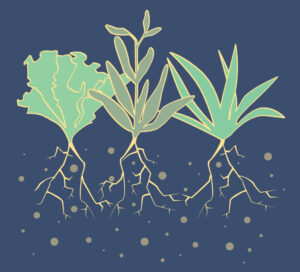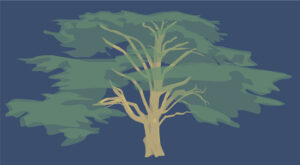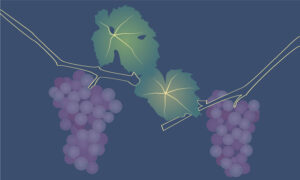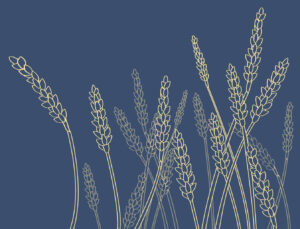The Biblical Story of Plants
Plants abound in the Bible, with the Ancient Near East being a place of great biodiversity (Freedman, 2000). The creation of plants is described in Genesis 1, saying “Let the land produce vegetation: seed-bearing plants and trees on the land that bear fruit with seed in it, according to their various kinds” (Gen 1:11).

Trees
Trees generate much of the world’s oxygen while absorbing carbon dioxide. Trees provide a habitat for many animals, half of all species live in trees, and plants, with tropical forests being among the most biodiverse habitats in the world. They are introduced at creation, where “the land produced vegetation…trees bearing fruit with seed in it according to their kinds” (Genesis 1:12). Their story continues with the introduction in the Garden of Eden of the two most notable trees in the Bible, “In the middle of the garden were the tree of life and the tree of the knowledge of good and evil” (v. 9).

Fruit
Fruit from trees serve both as food and seed generating new life. During creation, God gave people “every tree that has fruit with seed in it. They will be yours for food” (Genesis 1). Adam and Eve were given the fruit in the Garden of Eden (Genesis 2). The prominence of fruit in the Bible reflects the suitability of the Mediterranean climate for growing fruit. Terraced fields were used to grow olives, grapes, figs, pomegranates, along with almond and fruit trees (Hillel, 2007). Fruit from trees was used for purposes such as food, drink, and oil in the Bible.

Grain
In the Bible, grain’s presence reflects the transition of the Israelites’ society from nomadic to agricultural. Jacob’s family was facing famine in their homeland of Canaan. When Jacob’s family was facing famine in Canaan, in Egypt “Joseph stored up huge quantities of grain, like the sand of the sea” (Genesis 41:49). God commanded the Israelites to use grain for offerings (Leviticus 2, 5, 6, 7, 9, 10, 14, 23), given as a promise of future prosperity (Numbers 20:5, Deuteronomy 11:14;), and its absence used as a sign of scarcity (Deuteronomy 7:13). The Holy Land was described as a land of wheat and barley (Deuteronomy 8:8).

